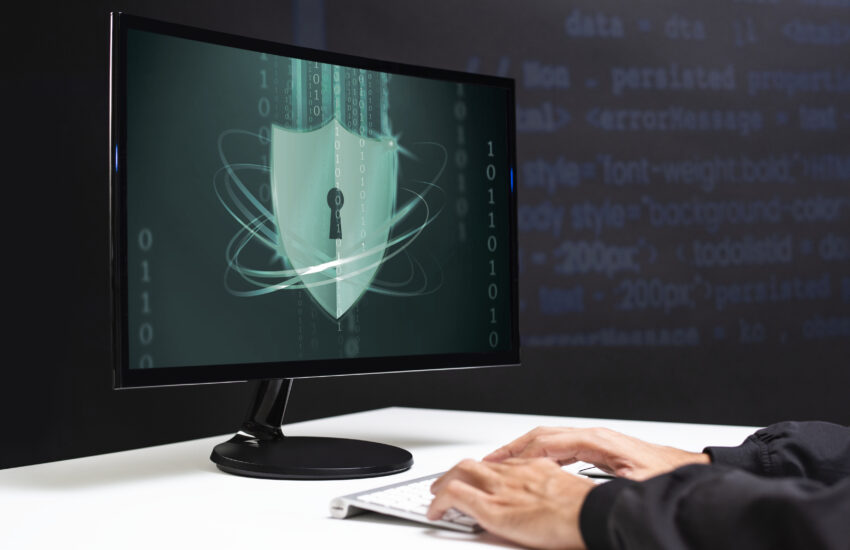💡 Whether you’re a student attending online classes, researching projects, or playing games—your laptop and online accounts must be protected. Cyberattacks don’t just target big companies; they can target YOU too!
Let’s explore the essential cybersecurity tips every student must follow in 2025 to stay safe from hackers, viruses, scams, and data leaks.
🧠 What is Cybersecurity?
Cybersecurity means protecting your digital world—your laptop, passwords, apps, and online identities—from people who try to steal, delete, or misuse your data.
Hackers can:
- Steal your school assignments 📚
- Access your emails and social media 😱
- Lock your laptop and demand money (ransomware) 💸
So let’s break it down into simple, actionable steps to help you stay safe.
💻 1. Always Use Strong & Unique Passwords
📌 Rule: A strong password is your first line of defense.
✅ Tips:
- Use 12+ characters (mix of letters, numbers, and symbols)
- Never use “123456”, your birthday, or your pet’s name
- Don’t repeat the same password on every website
🛠️ Tool Tip: Use a free Password Manager like Bitwarden or NordPass to save and create strong passwords.
🔒 2. Turn On Two-Factor Authentication (2FA)
🔐 Adds an extra lock to your online accounts.
Even if someone gets your password, 2FA sends a secret code to your phone or email to confirm it’s you.
📱 Use it on:
- Gmail or Outlook
- Instagram, Snapchat, or TikTok
- Online banking or student portals
🛠️ Apps like Google Authenticator or Authy make it easy.
🛡️ 3. Install a Reliable Antivirus Software
🦠 Viruses aren’t just in biology—they exist in tech too!
Antivirus software protects your laptop from:
- Viruses
- Malware
- Ransomware
- Spyware
💻 Good Free Antivirus:
- Avast Free Antivirus
- Kaspersky Security Cloud Free
- Microsoft Defender (built-in on Windows 10/11)
🛑 Avoid clicking on “Free Download” ads from sketchy websites!
🌐 4. Secure Your Wi-Fi and Avoid Public Networks
🚫 Don’t let your data fly around in public!
Public Wi-Fi (in cafes, malls, or parks) is often not secure. Hackers can easily steal your info.
✅ Safer Options:
- Use a mobile hotspot if needed
- Use a VPN (Virtual Private Network) like ProtonVPN or Windscribe
🔐 At home:
Change your Wi-Fi password regularly and don’t share it with everyone.
📥 5. Think Before You Click: Spot Phishing Emails
🎣 “Phishing” is when hackers send fake emails to trick you into clicking bad links.
🚨 Warning Signs:
- Strange emails from banks, schools, or unknown people
- Messages that say “Urgent! Click Now!”
- Spelling mistakes or weird links
✅ Action:
Don’t click! Report the email and delete it.
🛠️ Tool Tip: Use Gmail’s or Outlook’s “Report Phishing” feature.
💾 6. Back Up Your Important Data Regularly
💻 If your laptop gets hacked or crashes, your homework is gone… unless you backed it up!
📁 Backup Options:
- Google Drive / OneDrive / Dropbox
- External hard drives
- School cloud storage (if provided)
Set reminders to back up your files weekly or use automatic syncing.
🔄 7. Update Your Software and Operating System
🧑🔧 Old software = open doors for hackers.
Developers release updates to fix security bugs. If you don’t update, your system stays vulnerable.
✅ Update:
- Windows / macOS / Linux
- Browsers (Chrome, Firefox, Edge)
- Apps like Zoom, MS Office, or Adobe
💡 Tip: Turn on Auto-Updates wherever possible.
👨👩👧👦 8. Use Separate Accounts for School and Personal Use
📌 Keep school stuff separate from gaming or social media.
This way, if one account gets hacked, the others remain safe.
✅ Use:
- One email for school (assignments, portals)
- One email for personal (shopping, apps)
- Separate browsers or profiles (Chrome profiles, Firefox containers)
🎮 9. Be Safe While Downloading Games or Apps
🔍 Don’t fall into traps just for free games.
✅ Download ONLY from trusted platforms:
- Google Play Store / Apple App Store
- Steam / Epic Games Store
- Official game websites
⚠️ Avoid:
- Torrent sites
- Cracked software
- Unknown game launchers
📚 10. Learn the Basics of Ethical Hacking
🕵️ Ethical hackers protect systems from bad hackers. Start learning the right way!
You can:
- Take beginner-friendly cybersecurity courses
- Learn about networks, firewalls, and ethical hacking tools
- Explore platforms like TryHackMe, Hack The Box (beginner-friendly)
🎓 It’s fun, legal, and future-proof!
📌 Quick Cyber Safety Checklist for Students
| ✅ Task | Frequency |
|---|---|
| Change passwords | Every 3-6 months |
| Backup data | Weekly |
| Run antivirus scan | Weekly |
| Update software | Monthly (or auto) |
| Check 2FA on all accounts | Once every 6 months |
| Never share passwords | Run an antivirus scan |
👨💻 Final Thoughts: Stay Smart, Stay Safe!
Cybersecurity isn’t just for tech experts or IT students—it’s for everyone using the internet. By learning these basic habits, you’re becoming your digital bodyguard.
🧠 Remember:
“In the digital world, your security is only as strong as your habits.”

